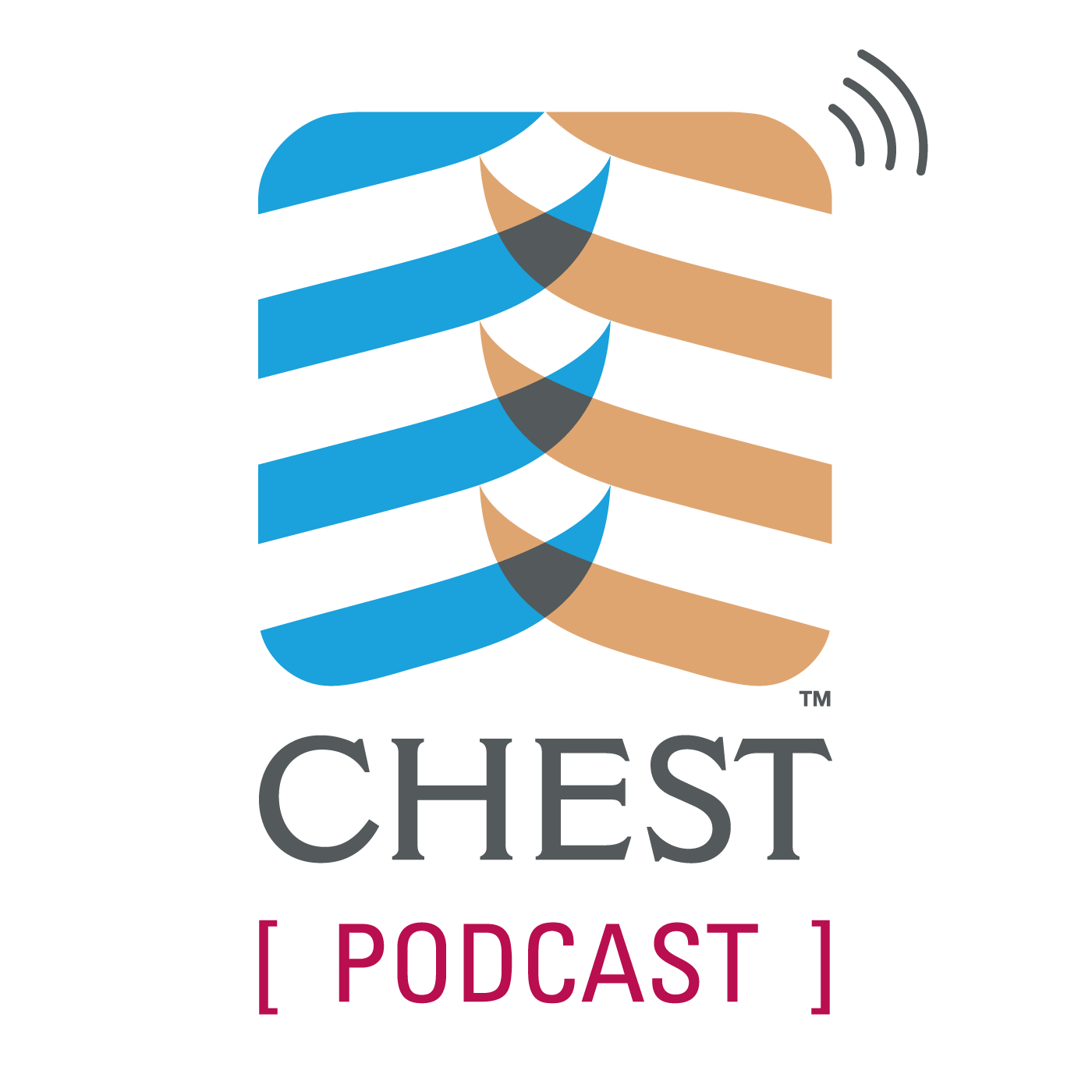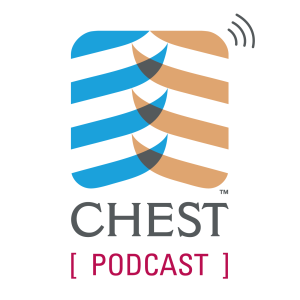
1.1M
Downloads
310
Episodes
Each month, CHEST hosts a discussion with the author of one or more articles from the current issue, adding context and commentary on the most relevant topics facing those in the fields of pulmonary, critical care, and sleep medicine.
Episodes

Monday Nov 07, 2016
Monday Nov 07, 2016
Alain Tremblay, MD, and editorialist David E. Ost, MD, FCCP, joined CHEST Podcast Editor, D. Kyle Hogarth, MD, FCCP, to discuss the research by multi-center Canadian study by Tremblay et al that evaluated how well autofluorescence bronchochoscopy (AFB) detected high-grade lesions in patients at risk for lung cancer. Their study determined that too few CT occult cancers were detected to justify its addition into a lung cancer screening program.

Monday Oct 17, 2016
Evaluation of Pulmonary Nodules: Clinical Consensus for Asia
Monday Oct 17, 2016
Monday Oct 17, 2016
Devanand Anantham, MD, and Ching-Fei Chang, MD, join CHEST Podcast Editor D. Kyle Hogarth, MD, FCCP, to discuss the multi-country Asian adaption of guidelines to evaluate pulmonary nodules.

Wednesday Sep 07, 2016
A Novel Assay to Identify Patients Likely to Have HIT
Wednesday Sep 07, 2016
Wednesday Sep 07, 2016
Anand Padmanabhan, MD, joins David A. Garcia, MD, FCCP, and guest podcast moderator, Bruce L. Davidson, MD, FCCP, to discuss the results of the research of Dr. Padmanabhan et al on a PF4-dependent platelet activation assay to identify patients likely to have heparin-induced thrombocytopenia/thrombosis.

Friday Aug 05, 2016
Association Between Occupational Exposure and Sarcoidosis
Friday Aug 05, 2016
Friday Aug 05, 2016
Lisa A. Maier, MD, MSPH, and Elliott D. Crouser, MD, join CHEST Podcast Editor, D. Kyle Hogarth, MD, FCCP, to discuss the study by Dr. Maier and her colleagues looking at data from death certificates to assess the association between occupations and sarcoidosis.

Thursday Jul 07, 2016
Burnout in the iCU: A Collaborative Statement
Thursday Jul 07, 2016
Thursday Jul 07, 2016
Curtis N. Sessler, MD, FCCP, and Stephen M. Pastores, MD, FCCP, join CHEST podcast editor D. Kyle Hogarth, MD, FCCP, to discuss this important topic, which is being addressed by the Critical Care Societies Collaborative "call to action" statement.

Thursday Jun 09, 2016
Should IV Albumin Be Used for Volume Resuscitation in Sepsis/Septic Shock?
Thursday Jun 09, 2016
Thursday Jun 09, 2016
In this month's podcast, Pietro Caironi, MD, and Angel O. Coz Yataco, MD, FCCP take on the Point/Counterpoint topic with CHEST Podcast Editor, D. Kyle Hogarth, MD, FCCP. Dr. Caironi takes the "Yes" side, arguing that albumin has been shown to correct for hypoalbumenia in patients with sepsis. Dr. Coz Yataco takes the opposing view that mortality rates are not shown to improve and that the cost is high.

Thursday May 05, 2016
New Sepsis Definitions (Sepsis-3)
Thursday May 05, 2016
Thursday May 05, 2016
Steven Simpson, MD, and Clifford S. Deutschman, MD, MS, join CHEST Podcast D. Kyle Hogarth, MD, FCCP to discuss the merits of the new Consensus Definitions for Sepsis and Septic Shock (Sepsis-3), recently published in JAMA. Dr. Simpson wrote an editorial for CHEST on this topic.

Thursday May 05, 2016
Giants in Chest Medicine: Arthur P. Wheeler, MD, FCCP
Thursday May 05, 2016
Thursday May 05, 2016
Dr. Wheeler was interviewed by CHEST Podcast Editor, D. Kyle Hogarth, MD, FCCP on the path of career and the highlights of his life's work.

Monday Apr 04, 2016
Mental Illness Association with 30-Day COPD Readmissions
Monday Apr 04, 2016
Monday Apr 04, 2016
Gurinder Singh, MD, and editorialist Abebaw Yohannes, PhD, FCCP, join CHEST Podcast Editor D. Kyle Hogarth, MD, FCCP, to discuss the close association of psychological disorders, with 30-day readmission rates in patients with COPD.

Monday Mar 07, 2016
Achthar vs. Corticosteroids: Is the Price Difference Warranted?
Monday Mar 07, 2016
Monday Mar 07, 2016
Mark L. Metersky, MD, FCCP, and Scott Manker, MD, FCCP, discuss the merits of injectable corticotropin vs. corticosteroids with CHEST Podcast Editor, D. Kyle Hogarth, MD, FCCP, given the exponentially higher cost of the former.
